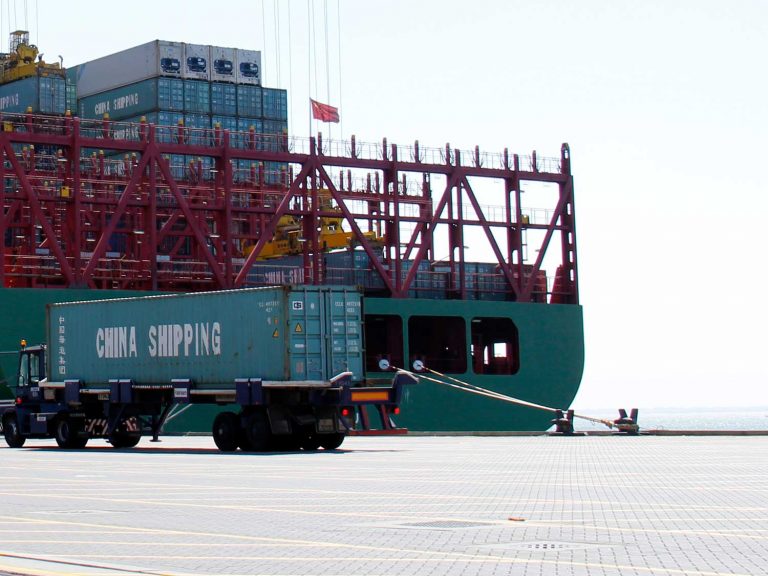
Date:
BBC report £10k freight costs to ship a container from China
Massive and continuing post-lockdown consumer demand has resulted in a lack of available space on vessels, shortage of empty shipping containers in Asia and congestion at destination ports, driving freight rates to levels never before experienced.
Taking issues that have perplexed shippers since last Summer to a wider audience, the BBC’s business reporter Vivienne Nunis, posted an article entitled: Shipping crisis: “I’m being quoted £10,000 for a £1,600 container.”
Metro has been reporting market intel throughout 2020/1 and the steady increase in shipping costs from across Asia, that shipping lines have implemented on the spot/ freight all kinds (FAK) markets, ending the year 10 times higher than the start.
This topic has now hit the national news headlining delays on products arriving into The UK causing a shortfall in availability and the impact on the future cost of the sales price of goods as freight costs filter through to the consumer.
The article highlighted the travails of an online retailer struggling to absorb a six-fold increase in freight costs.
Helen White, the founder of start-up Houseof.com, which imports lighting from China, says the rise in shipping costs means she’s making a loss on what she sells. “We were paying £1,600 per container in November, this month we’ve been quoted over £10,000,”
She’s one of many UK importers facing soaring freight costs amid a global shipping crisis that may last months.
It was hoped the backlogs could be cleared during the Chinese New Year holiday in February, but instead a coronavirus outbreak in China, and the action being taken by the Chinese government and authorities as a result, is adding to the uncertainty facing firms in relation to the cost and reliability of their supply chains.
In the UK the difficulties in international shipping have coincided with problems faced by businesses trading with the EU after Brexit and during the transition period since the start of the year to new processes and trading rules.
But some companies can’t absorb the skyrocketing freight costs that shipping lines are charging, which could lead to higher prices for consumers, particularly as it can be really hard for a small business to absorb these, without making a loss on the goods they’re selling.
Usually during the Chinese New Year holiday, factories in China shut down for two weeks and there were hopes the pause in production would give UK ports a chance to clear the backlog of ships waiting to dock, and encourage shipping lines to move more empty containers back to Asia.
But rising numbers of coronavirus cases have prompted the Chinese authorities to stagger factory closing dates so that not all workers are travelling to their home regions at the same time, which means some factories may not stop production at all. Incentives are being given for workers to remain in their region of employment and it is expected that hundreds of millions of journeys will not be made over the Spring festival period as the Chinese government looks to restrict movement of the population. This will have an impact on the production at factories.
And while there have been calls for the shipping lines to add more ships to help ease the backlog of stock orders building up at warehouses across China, more blacked sailings have been announced for the CNY period.
The BBC report suggests that shipping lines have been trying to drive down demand from British importers by charging a premium for deliveries to the UK, or bypassing the country’s ports altogether.
One shipping line recently offered freight rates of $12,050 for a 40ft container from China to Southampton, but charged just $8,450 for the same container to travel from China to Rotterdam, Hamburg, or Antwerp.
A glimmer of hope that does add a positive spin to the situation is that shipping lines are now starting to have their vessels arrive from North America and Europe with empty containers to replenish the diminished or non-existent stocks in China which will hopefully result in increased supply which should result in a softening of freight rates as demand for boxes becomes more balanced against supply.
For business-owners like Helen White, the difficulties affecting the shipping industry can’t be solved quickly enough.
In what looks likely to be another tumultuous sea freight year, Metro is well placed to deliver reliability and cost effective solutions based on a fixed validity pricing structure.
Protect your supply chain and budgets for 2021, by providing us with your forecasts and we will secure you a deal for the year ahead, that has fixed validity and consistency in pricing.
Call Ian Barnes and/ or Grant Liddell to discuss the latest market situation and your plans for the year.
